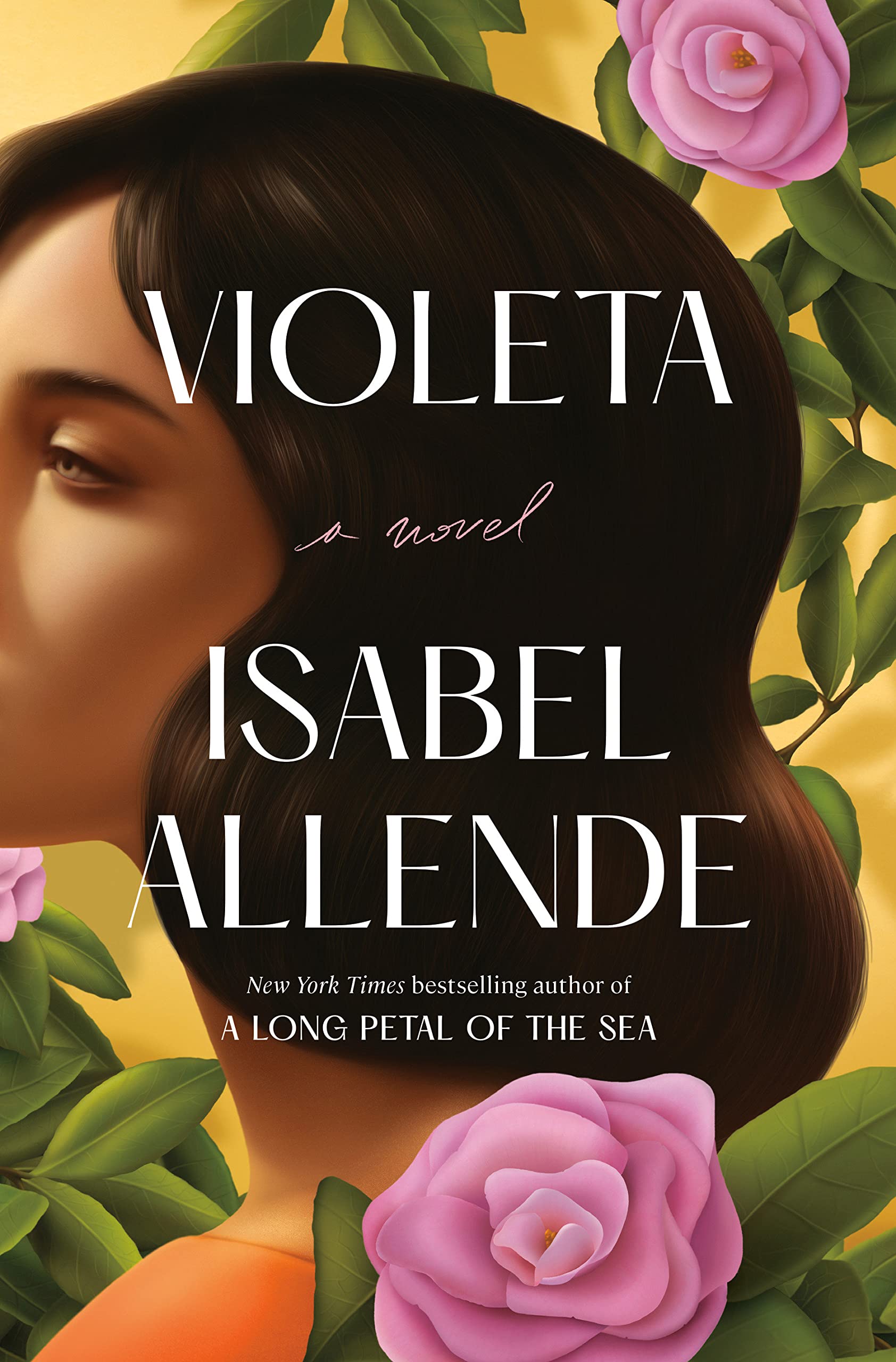By Brandi Larsen
Isabel Allende has created a lifetime’s body of work full of essential reads.
“Violeta,” her latest novel, is no exception, out now from Ballantine. Written in her native Spanish and translated by Frances Riddle, she uses the story of one woman’s life to take the reader through communities, countries, conflicts, and continents.
Violeta Del Valle is the title character, a centenarian whose life is bookended by both pandemics. In the epistolary novel addressed to an essential character in Violeta’s life, the reader follows Violeta from her birth to her last moments, a witness to the last hundred years of upheaval. She was a child who could not be controlled, an “expert in a variety of afflictions,” who goes from mimicking her mother’s “eternal illness” to an eventual old woman who credits her own good health to living a life “proudly ignoring any and all ailments.”
Born in a mansion in Chile’s capital, Santiago, Violeta and her family are exiled from the only city she knows after a tragedy brought on by a combination of global politics and her father’s underhanded business dealings. She comes of age in the quiet Southern countryside, a setting that will become a center of atrocity, later, during the country’s bloody revolution. When her first husband won’t grant her a divorce, she’s devastated that she cannot marry her lover, the father of her two children.
But the estrangement from her husband, whose connections to cruelty lay deeper than expected, gives her the financial freedom to build a life connected to men without being controlled by them. It’s a life led in Chile and then all over the world — with scenes in Cuba, Miami, California, Norway — but one punctuated by grief, the high stakes of country and kin intertwined through the powerful personal narrative in which Allende excels. In one instance, at the height of the coup, Violeta asks her ex-lover, Julian Bravo, to use his military connections to smuggle their adult son out of the country; his sneer on whether he was successful—or helped at all—amplifies Violeta’s despair.
The novel is a heroine’s journey, feminine in its cyclical darkness, born of blood and smelling like death. Violeta navigates the underworld, filled with men who are criminals and kingpins, mobsters and militants, pilots and priests, Nazis and the occasional good guy.
But, remember, Violeta emphasizes to her reader, the good ones never win.
On this point, I disagree with the title character. In the relationships Violeta values the most, the characters choose right even when the odds don’t look good. What I love about Allende’s work is that she populates her books with people who are deeply affected by each other, yes, but also by the time in which they live and the groups whose values they uphold, by each character’s capacity to change against the backdrop of historic and systemic injustice designed to retain power. Violeta’s grandson is one example, the rebellious boy who nearly gets expelled from Catholic school and then, with the revolution all around him, becomes a Jesuit priest, modeled on the real-life Chilean hero, Felipe Berríos del Solar, to whom Allende co-dedicates the book.
Violeta is a complicated and imperfect narrator, a character neither free of sin, ambivalence, nor bile. As she explains in her first letter:
I imagine someday, when you are old and less busy, you might want to stop and remember me. You have a terrible memory since you’re always so distracted, and that defect gets worse with age. I think you’ll see that my life story is worthy of a novel, because of my sins more than my virtues. You have received many of my letters, where I’ve detailed much of my existence (minus the sins), but you must make good on your promise to burn them when I die, because they are overly sentimental and often cruel. This recounting of my life is meant to replace that excessive correspondence.
We see Violeta on both the wrong side of history and on the front lines of justice. I loved how her love changes her (in ways I didn’t expect), how her humor and her drive create a shield of resilience, and how she discovers, as she puts it, “courage is contagious and that there’s strength in numbers; what you can’t do on your own can be achieved together, the more the better.”
That courage comes not in the absence of death, but in a grief so deep even decades of “military machismo” cannot stamp it out. The threads of grief and death hold the novel taut, as in much of Allende’s best work.
“Violeta,” written in a time of deep communal grief, was also inspired by a personal one, the death of Allende’s mother, with whom she shared thousands of letters. Allende has walked more than her fair share of miles down the path of grief, and her experience shows. Violeta’s big moments rocked me, but it was the small ones that devastated me, a simple phrase like “I love you more than anyone in this world,” that made me long for my own late mother to untangle Allende’s themes together. Grief and motherhood, the choices we make that define us, who we’ve loved, how and where we’ve lived, and those we’ve left behind, all tango on the page in a way that cracked me open. In a way that allowed me to feel what I’ve mostly kept at bay during this pandemic time of solitude and isolation.
Maybe it’s because I cradled the book in bed, reading straight until dawn, but Allende’s words moved my nebulous feelings—floating somewhere in the periphery—directly into my center, the most intimate and rewarding reason that I read.
Brandi Larsen serves as the board president for Literary Cleveland and writes books and essays. She is the co-writer of UNCULTURED: A Memoir, forthcoming from St. Martin’s.


